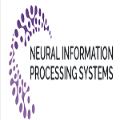Digital technologies are becoming increasingly prevalent in education, enabling personalized, high quality education resources to be accessible by students across the world. Importantly, among these resources are diagnostic questions: the answers that the students give to these questions reveal key information about the specific nature of misconceptions that the students may hold. Analyzing the massive quantities of data stemming from students' interactions with these diagnostic questions can help us more accurately understand the students' learning status and thus allow us to automate learning curriculum recommendations. In this competition, participants will focus on the students' answer records to these multiple-choice diagnostic questions, with the aim of 1) accurately predicting which answers the students provide; 2) accurately predicting which questions have high quality; and 3) determining a personalized sequence of questions for each student that best predicts the student's answers. These tasks closely mimic the goals of a real-world educational platform and are highly representative of the educational challenges faced today. We provide over 20 million examples of students' answers to mathematics questions from Eedi, a leading educational platform which thousands of students interact with daily around the globe. Participants to this competition have a chance to make a lasting, real-world impact on the quality of personalized education for millions of students across the world.
翻译:数字技术正在教育中日益普及,使世界各地的学生都能获得个性化的高质量教育资源。 重要的是,这些资源包括诊断问题:学生对这些问题的答案揭示了学生可能持有的错误观念的具体性质的关键信息。分析学生与这些诊断问题相互作用所产生的大量数据可以帮助我们更准确地理解学生的学习状况,从而使我们能够使学习课程建议自动化。在这一竞赛中,参与者将侧重于学生对这些多重选择诊断问题的答复记录,目的是:(1)准确预测学生的答案;(2)准确预测哪些问题具有很高的质量;(3)确定每个学生的个性化问题序列,以便最好地预测学生的答案。这些任务非常接近现实世界教育平台的目标,并且非常能代表当今面临的教育挑战。我们提供了2 000多万学生对Eedi数学问题的答复实例,Eedi是一个主要的教育平台,成千上万的学生每天与全球进行互动。参加这一竞赛的学员有机会对全世界个人化教育的质量产生持久、现实的影响。




